第4章
Some six weeks after this, inquiry began to be made as to a certain cheque for twenty pounds drawn by Lord Lufton on his bankers in London, which cheque had been lost in the early spring by Mr Soames, Lord Lufton's man of business in Barsetshire, together with a pocket-book in which it had been folded. This pocket-book Soames had believed himself to have left it at Mr Crawley's house, and had gone so far, even at the time of the loss, as to express his absolute conviction that he had so left it. He was in the habit of paying a rentcharge to Mr Crawley on behalf of Lord Lufton, amounting to twenty pounds four shillings, every half-year. Lord Lufton held the large tithes of Hogglestock, and paid annually a sum of forty pounds eight shillings to the incumbent. This amount was, as a rule, remitted punctually by Mr Soames through the post. On the occasion now spoken of, he had had some reason to visit Hogglestock, and had paid the money personally to Mr Crawley. Of so much there is no doubt. But he had paid it by a cheque drawn by himself on his own bankers at Barchester, and that cheque had been cashed in the ordinary way on the next morning. On returning to his own house in Barchester he had missed his pocket-book, and had written to Mr Crawley to make inquiry. There had been no money in it, beyond the cheque drawn by Lord Lufton for twenty pounds. Mr Crawley had answered this letter by another, saying that no pocket-book had been found in his house. All this had happened in March.
In October, Mrs Crawley paid twenty pounds to Fletcher, the butcher, and in November Lord Lufton's cheque was traced back through the Barchester bank to Mr Crawley's hands. A brickmaker of Hoggle End, much favoured by Mr Crawley, had asked for change over the counter of this Barchester bank--not, as will be understood, the bank on which the cheque was drawn--and had received it. The accommodation had been refused to the man at first, but when he presented the cheque the second day, bearing Mr Crawley' name on the back of it, together with a note from Mr Crawley himself, the money had been given for it; and the identical notes so paid had been given to Fletcher, the butcher on the next day by Mrs Crawley. When inquiry was made, Mr Crawley stated that the cheque had been paid to him by Mr Soames, on behalf of the rentcharge due to him by Lord Lufton. But the error of this statement was at once made manifest.
There was the cheque, signed by Mr Soames himself, for the exact amount--twenty pounds four shillings. As he himself declared, he had never in his life paid money on behalf of Lord Lufton by a cheque drawn on his lordship. The cheque given by Lord Lufton, and which had been lost, had been a private matter between them. His lordship had simply wanted change in his pocket, and his agent had given it to him. Mr Crawley was speedily shown to be altogether wrong in the statement made to account for the possession of the cheque.
Then he became very moody and would say nothing further. But his wife, who had known nothing of his first statement when made, came forward and declared that she believed the cheque for twenty pounds to be part of a present given by Dean Arabin to her husband in April last. There had been, she said, great heart-burnings about this gift, and she hardly dared to speak to her husband on the subject. An execution had been threatened in the house by Grobury, the baker, of which the dean had heard. Then there had been some scenes at the deanery between her husband and the dean and Mrs Arabin, as to which she had subsequently heard much from Mrs Arabin. Mrs Arabin had told her that money had been given--and at last taken. Indeed, so much had been very apparent, as bills had been paid to the amount of at least fifty pounds. When the threat made by the butcher had reached her husband's ears, the effect upon him had been very grievous. All this was the story told by Mrs Crawley to Mr Walker, the lawyer, when he was pushing his inquiries.
She, poor woman, at any rate told all she knew. Her husband had told her one morning, when the butcher's threat was weighing heavily on his mind, speaking to her in such a humour that she found it impossible to cross-question him, that he had still money left, though it was money which he had hoped that he would not be driven to use; and he had given her four five pound notes and had told her to go to Silverbridge and satisfy the man who was so eager for his money. She had done so, and had felt no doubt that the money so forthcoming had been given by the dean. That was the story told by Mrs Crawley.